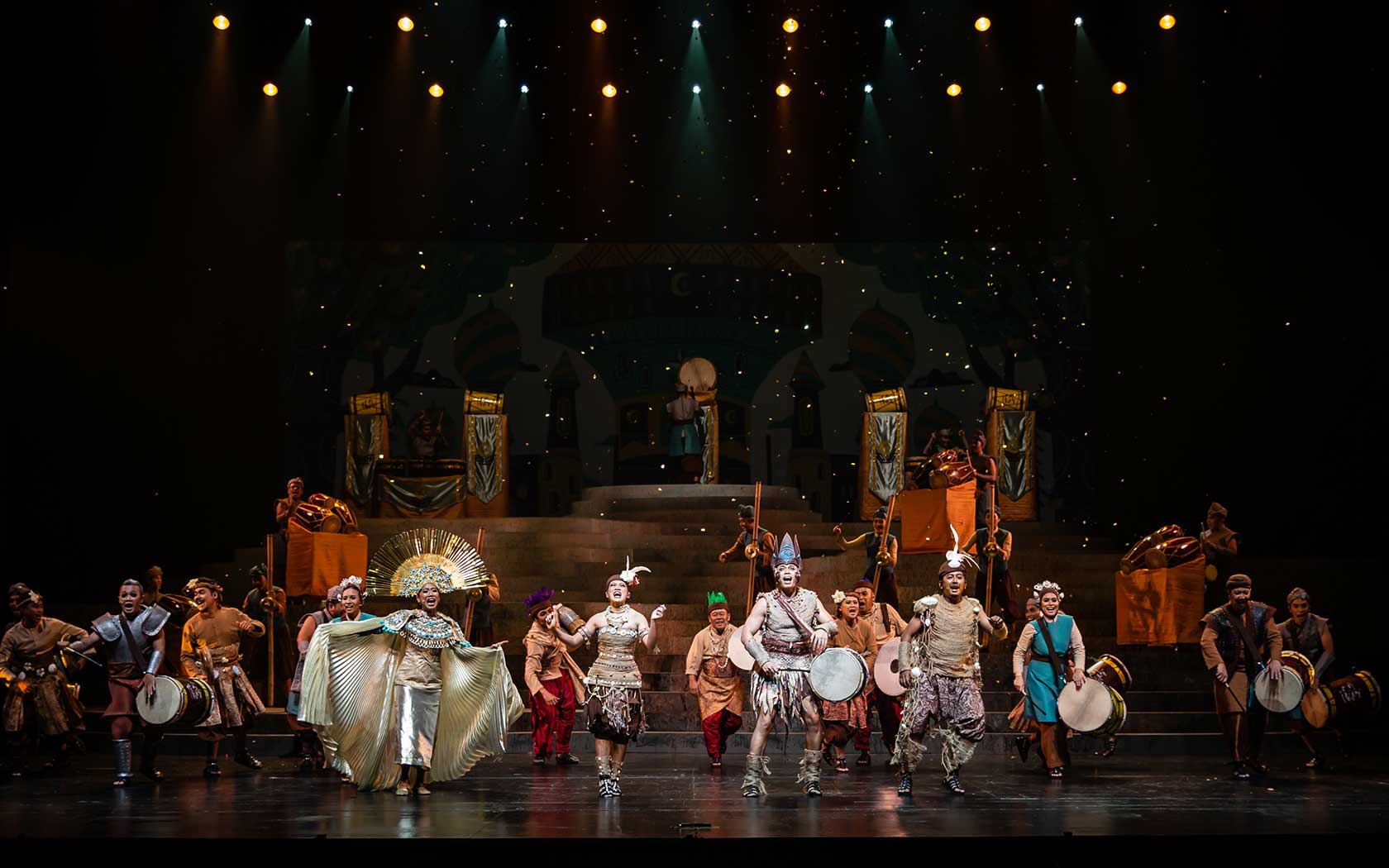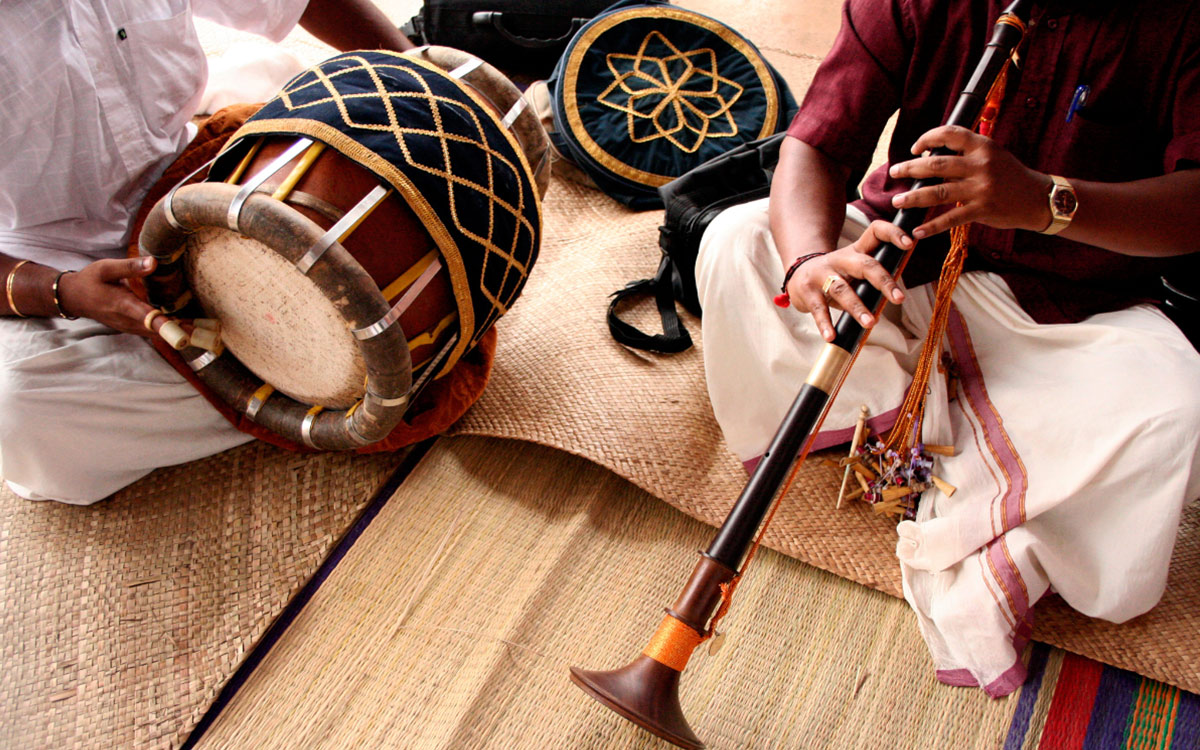From weddings to child-naming ceremonies, temple celebrations to music festivals, the loud and mellifluous nadaswaram (double reed wind instrument) paired with the penetrating thavil (barrel-shaped drum) are familiar sounds. Grand and evocative, sometimes boisterous, the music, referred to as mangala isai (auspicious music), is believed to sanctify ceremonies and bring heavenly blessings as it reaches the ears of the deities.
When it comes to mangala isai, the instruments are inseparable. The coupling of the nadaswaram and thavil is a millennia-old tradition called mangala vaadhyam (auspicious instruments) that originated in Thiruvaiyaru, a town in Tamil Nadu. Some believe mangala isai originated from the Sama Veda, the third of four holy Vedic scriptures filled with melodic chants and hymns; others believe it has been around much longer.
This performance gives you insight into the world of Carnatic compositions, through the melodious pairing of the auspicious instruments nadaswaram and thavil, in a performance of mangala isai, heard at almost all Hindu weddings and in temples of the South Indian tradition.
Vidvans, devout musicians and singers
Mangala vaadhyam is associated with religious consciousness: the awareness of the divine and of others in the divine. There is a whole series of compositions that corresponds to specific temple rituals, performed at the start to set the mood.
At South Indian temples, musicians get up as early as four in the morning to perform a wake-up call to the gods, and by bedtime, a lullaby. In between, they also provide accompaniment to each of the daily rituals, which range from announcing the arrival of the village deity, to replacing the idols with fresh garlands. Above all, they are required to know all the corresponding compositions, as well as purify themselves before, during and after playing.
Such is the discipline of these consummate musicians—called vidvans—who undergo many years of rigorous training at gurukul (schools) where they live and study under their gurus. Many of them belong to the Isai Vellelar community and are also known to be expert singers.











